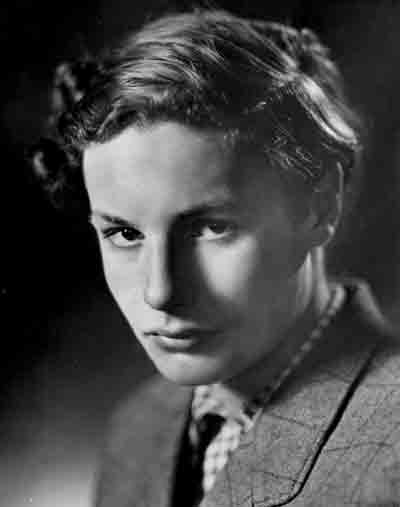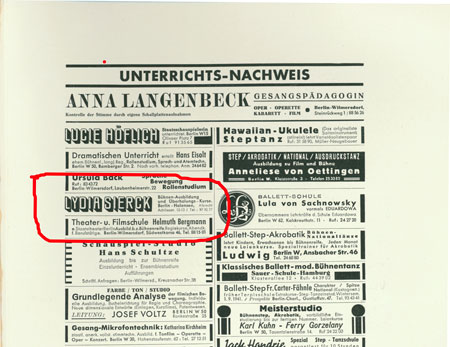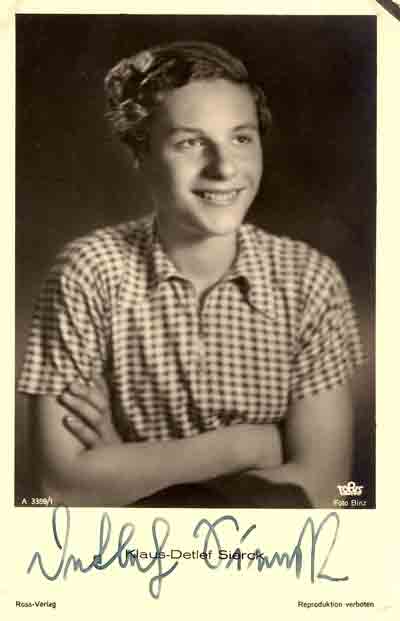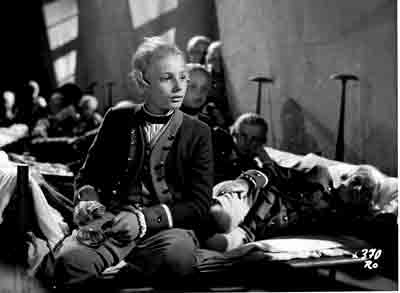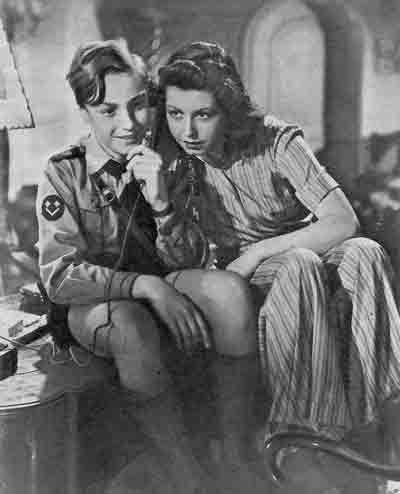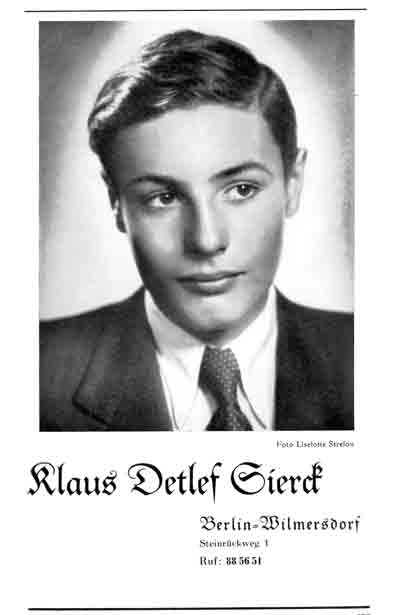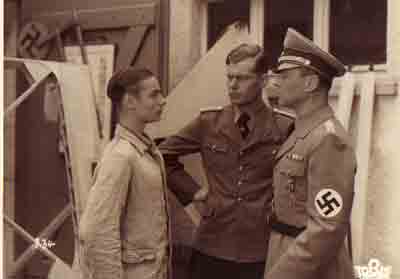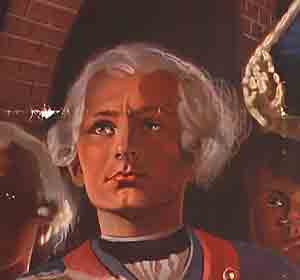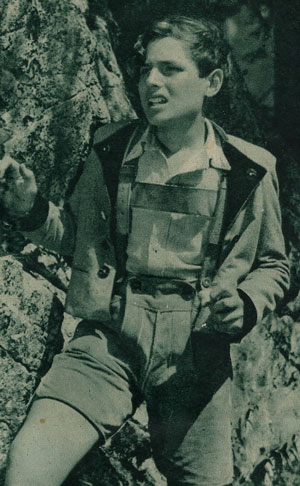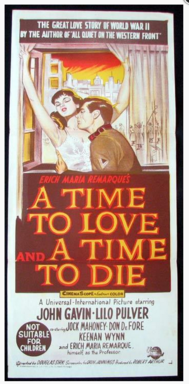- Home
- POSTER GALLERY
- ❗️BOOK & POSTER STORE❗️
- PURCHASE "HJ Quex" film ephemera HQ
- About the Posters
- The William Gillespie Collection
- Our Publishing House
- ❗️GFDN interviews author and collector William Gillespie ❗️
- Our most expensive & inexpensive finds!
- ❗️***NEW!**❗️POSTER OF THE MONTH - Blutzeugen / Raza
- ❗️NEW ❗️Film Posters – Demands on an important means of film advertising. ❗️
- In our Book + Zeitschrift Library
- ❗️ ***NEW!*** Hitler Youth Quex – A Guide for the English–speaking Reader ***NEW!*** ❗️
- ❗️***NEW!*** Table of Contents of our new HJ QUEX book❗️
- ❗️Hitler Youth Quex Guide - early praise! ❗️
- Recent loans from the Collection
- Farewell Horst Claus. (1940–2024 †)
- "Der Deutsche Film" Zeitschrift
- ❗️ ***NEW!***Reichsfilmkammer collection ❗️
- German "Tendency" Films (Tendenzfilme) in the Third Reich
- KARL RITTER
- Karl Ritter original film posers in this Collection
- "Besatzung Dora" ( † 1943)
- "The Making of The Crew of the Dora"
- Karl Ritter at the 1938 Reichsfilmkammer Congress
- INDEX -"Karl Ritter" book, 2nd edition
- Karl Ritter's Legion Condor (1939, unfinished)
- Excerpt from our "Dora" book
- ∆∆∆∆∆ High praise for our DORA book! ∆∆∆∆∆
- TABLE OF CONTENTS – "Legion Condor"
- § § § § § Early Praise for our LEGION CONDOR book! § § § § §
- ❗️"Das Leben geht weiter" and Karl Ritter ❗️
- Dateline: Ufa - April 11, 1945
- Zarah Leander Europe–wide !
- Japan Military Film and Karl Ritter
- Karl Ritter after 1945
- 1935 Film Congress
- Poster Exhibition in Berlin, March 1939
- Potsdam poster exhibition 12 April–25 August 2019
- Leni Riefenstahl's two "Olympia" Films (1938)
- "Ohm Krüger" (1941)
- Emil Jannings
- "Blutendes Deutschland" (1933)
- Hannes Stelzer ( † 1944)
- Klaus Detlef Sierck ( † 1944)
- Film stills
- Reich Film Censorship Offices
- ❗️***NEW!***The Fate of the German Film Industry in May 1945 ❗️
- Film censorship cards
- Film Archives
- Cinema advertising
- School filmstrips
- ❗️UPDATED❗️ Z F O / Ostland Film G-m-b-H
- Z F O / Herbert Jacobi estate
- ZFO / Ostland Film newspaper articles
- ❗️***NEW!*** Roter Nebel / Red Fog / Red Mist (1942/1943, ZFO) ❗️
- ZFO - Der Rückkehrer - The Returnee (1943/1944)
- The D F G production company
- D I F U
- ❗️ ***NEW!*** "Carl Peters" – Special Collection. ❗️
- "Alcazar" (1940, Genina)
- "Der 5. Juni" (1943, banned)
- Herbert Selpin and his "Titanic" (1943)
- Ein Robinson (1940, Fanck)
- "Fronttheater" (1942)
- Veit Harlan's Jud Süß and Fritz Hippler's Der Ewige Jude
- Harlan "Jud Süß" trial 1949
- Werner Krauss & JUD SÜß
- Anti-Semitic Film Posters in the Collection
- "Heimkehr" (1941)
- "Hitlerjunge Quex" (1933)
- ❗️***NEW!*** Hitlerjunge Quex in 111 Greater Berlin Cinemas ❗️
- Jürgen Ohlsen
- "S.A.Mann Brand" (1933)
- "In der roten Hölle" (Edgar Neville, 1939)
- "Helden in Spanien" (1938)
- The Spanish Civil War in Film
- Andrews Engelmann (1901 – 1992)
- Deutsche Wochenschau
- Uƒa Feldpost
- Uƒa Kulturfilm – Informationen
- " Die Tochter des Samurai" (1937, Fanck)
- Ufa 25th Anniversary
- Invitations to world premieres
- ❗️***NEW!*** Continental Films, Paris 1940–1944 ❗️
- Film Censorship in Occupied Paris 1942
- "Der Sieg des Glaubens" (1933)
- Wilhelm Althaus Estate
- Weimar Germany posters
- Ufa and the Ordensburgen
- The Gaufilmstelle in our Collection
- "Zwei Welten" (1940)
- "Capriccio" (1938) –Karl Ritter film album
- Unrealised NS Propaganda Films 1934–1945
- German Film Directors accused of "war crimes"
- Australian––themed NS feature films
- "Der Störenfried" / "The Troublemaker"
- What was new in 2014?
- What was new in 2015?
- What was new in 2016?
- What was new in 2017?
- What was new in 2018?
- What was new in 2019?
- What was new in 2020?
- What was new in 2021?
- What was new in 2022?
- What was new in 2023 ?
- What's new in 2024?
- ❗️***NEW!*** Hitler assassination attempt in Karl Ritter film cut❗️
- BESATZUNG DORA private photos
- Just discovered 1942 article on BESATZUNG DORA
- The Karl Ritter Tetralogy
- Google Analytics 2023
- Our first–ever acquisition!
- ❤️"Some of our favourite things....!"❤️
- ERRATUM for our " Hitler Youth Quex Guide"
- Trending
- Vale †
- Our Wants List / 2024 / Wunschliste
- Pop Quiz
- Unsere KARL RITTER Bücher in Deutschland liefbar!
- WHERE to buy our books right now?
- ✉️Contact
 “History is not about the facts. It is about the context and who is telling the story.” —Prof. Milton Fine.
“History is not about the facts. It is about the context and who is telling the story.” —Prof. Milton Fine.
"Who controls the past controls the future: who controls the present controls the past." –– George Orwell in his novel "1984."
"Whoever doubts the exclusive guilt of Germany for the Second World War destroys the foundation of post–war politics." –– Prof. Theodor Eschenberg, Rector, the University of Tübingen.
"If we have our own why in life, we shall get along with almost any how." – Friedrich Nietzsche
POSTER GALLERY --view
over 500 German film
original posters between
1927–1954 from
Germany and from
many Axis and Neutral countries
across Europe!
Note! Posters in the Poster Gallery are PERMANENT
acquisitions which are NOT FOR SALE!! ONLY the
posters listed in our POSTER STORE are for sale.
(They have a price and order button to use.)
Klaus Detlef Sierck (1925–1944)
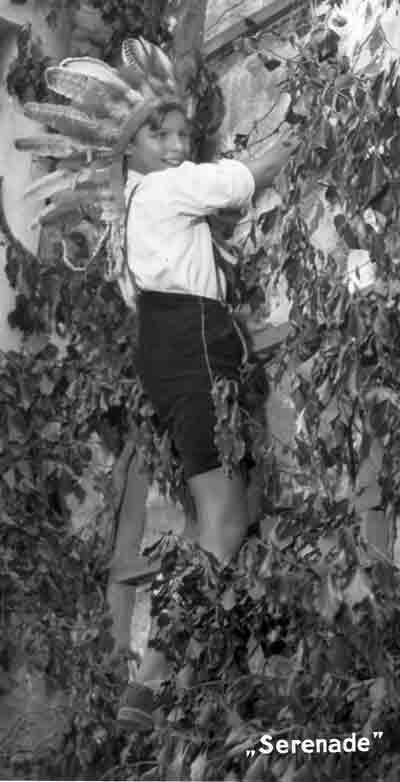
The young child actor Klaus Detlef Sierck was born on 30 March 1925 to Detlef and Lydia Sierck (née Brinken) in Berlin. When Klaus was four years old, the Siercks divorced. Detlef Sierck then married a second time, to actress Hilde Jary, who was Jewish. After the Nazis came to power, Sierck was under some pressure to divorce his non-Aryan wife, which he did not do, but she was given a passport to exit Germany in 1936. In 1937, Sierck was given a passport for two months to film the Zarah Leander film La Habanera on the Spanish Canary Islands, had the passport extended for a further six months for a scouting trip to Rome for his next Ufa production, and there met up with his wife in Italy, where on a pretext of his falling seriously ill, he entered hospital in Rome. There he fooled Gestapo agents as to his medical condition, and with his wife was able to sneak away for Holland and then to the USA. There Sierck became Hollywood director Douglas Sirk. He died in Switzerland in 1987.
Young Klaus, almost eight years old when Hitler came to power, was brought up by his mother Lydia, who was a member of the NSDAP, and she encouraged Klaus to join the Hitler Youth and to start a film career as a child actor.
Lydia and Klaus Sierck lived in an old artist’s colony apartment complex from the Weimar era, at Steinrückweg 1, Berlin, which still stands today. Lydia taught acting lessons to earn a living, advertising for instance in the Reichsfilmkammer’s publication Der Deutsche Film during the war years. Lydia Sierck died on August 25, 1947, reputedly a suicide. Another source, Tom Ryan's THE FILMS OF DOUGLAS SIRK, says that she died ' in 1945' from cancer. We tend to believe the 1947 death, as it is specific. Why would anyone make up a specific death day for an otherwise forgotten woman?
In 1935, young Claus appeared in his first film, called Die Saat geht auf. He played the son of a farmer. Lydia Sierck played a small role in the film as a waitress. This was the only time both mother and son appeared in the same film.
Die Saat geht auf (The seed opens) was a short film made by Euphone Film GmbH in Berlin for the Reichspropagandaleitung der NSDAP and the federal offices of the Reichsbaurenführer, Walter Darré. The film was 1,333 meters long, according to the censorship card for it in our Collection. This is just shy of 15 minutes of 35mm film projected at 24 fps.
In 1937 Klaus starred in Streit um Knaben Jo and made feature films under Veit Harlan (Verwehnte Spuren, Das unsterbliche Herz, Der Große König), as well as two features made for Hitler Youth audiences, Karl Ritter’s Kadetten and de Kowa’s Kopf Hoch, Johannes! Other films included Die Saat geht auf, Serenade, Aus erster Ehe. Das Recht auf Liebe, Preußische Liebesgeschichte, and Schatten über St. Pauli. He was one of six Hitler Youth boys who starred in Georg Zoch and Bengt Berg's 1938 adventure semi–documentary film, Sehnsucht nach Afrika.
According to Harlan’s autobiography, Goebbels took a strong dislike to Klaus and cut some of his scenes from Der Große König and ‘pursued him, completely unjustified, for homosexuality, brought him so before the Gestapo, forbade him to film and sent the unusually delicate and sensitive boy to the military.’ (Noack, Frank; VEIT HARLAN, p.555, belleville, 2000). Klaus Detlef Sierck was a conscript in the Großdeutschland Division, and fell in battle, aged just 19, on 22 May 1944 at Novo Alexandrovka, Russia. Burial: Soldatenfriedhof Iwaniwka Lutsk, Volyns'ka, Ukraine. (Undoubtedly, Goebbels also was infuriated that Klaus' father not only managed to flee Nazi Germany via Italy with his Jewish wife, but that he in 1942 produced the Hollywood film Hitler's Madmen.)
The German film industry's newspaper of record, the Film–Kurier Tageszeitung in Berlin reported his death in their 6 June 1944 issue (in our Zeitschriften Collection):
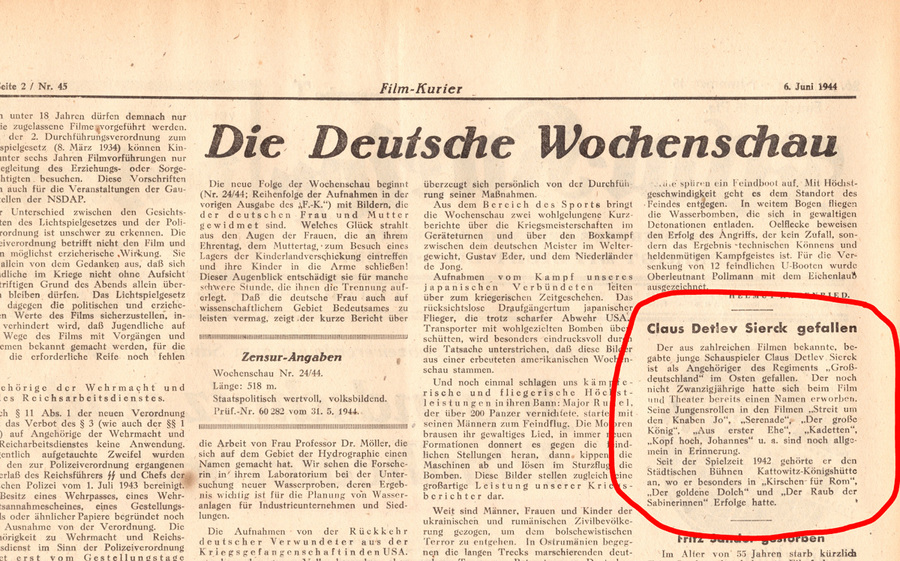
Not knowing his boy’s fate, his father returned to Germany after the war and searched for his son. Once he learned years later that Klaus had died in Russia, as he later indicated to interviewer John Halliday, he had hoped his son had had a chance to find some love before he died. Sirk’s melancholy and shattering 1957 Cinemascope film A Time to Love and a Time to Die was, Sirk said, ‘one possible’ story of what perhaps had happened to young Klaus.
Photographs of Klaus Detlef Sierck
BELOW are some photographs from the Collection:
1. Official Ufa studio portrait 2. Lyia Sierck's ad in Der Deutsche Film, 1941
3. Steinrückweg "Künstler Kolonie" land, Berlin
4. Roßkarte with signature 5. Klaus as Kadet Hohenhausen in Karl Ritter's Kadetten (filmed 1939)
6. With Maria Langrock, Aus erster Ehe (1940)
7. Klaus in Kunstler Almanach für Bühne und Film, Ton Film-Führer, 1941, Berlin
8. Klaus in Kopf Hoch, Johannes! (1941)
9. Klaus as Kadet Hohenhausen as depicted on the film poster for Kadetten (released 1941).
10. Klaus as Sefan von Salurn in Das Recht auf Liebe ( 1939), when he was fourteen years old, and five years before he died fighting in Soviet Russia.
11. Klaus in his HJ uniform, with armband (his armband cropped out in the "Programm von Heute" cards of the same photograph), from the Tobis Filmkunst pressbook of Kopf hoch, Johannes! found in our Collection.
